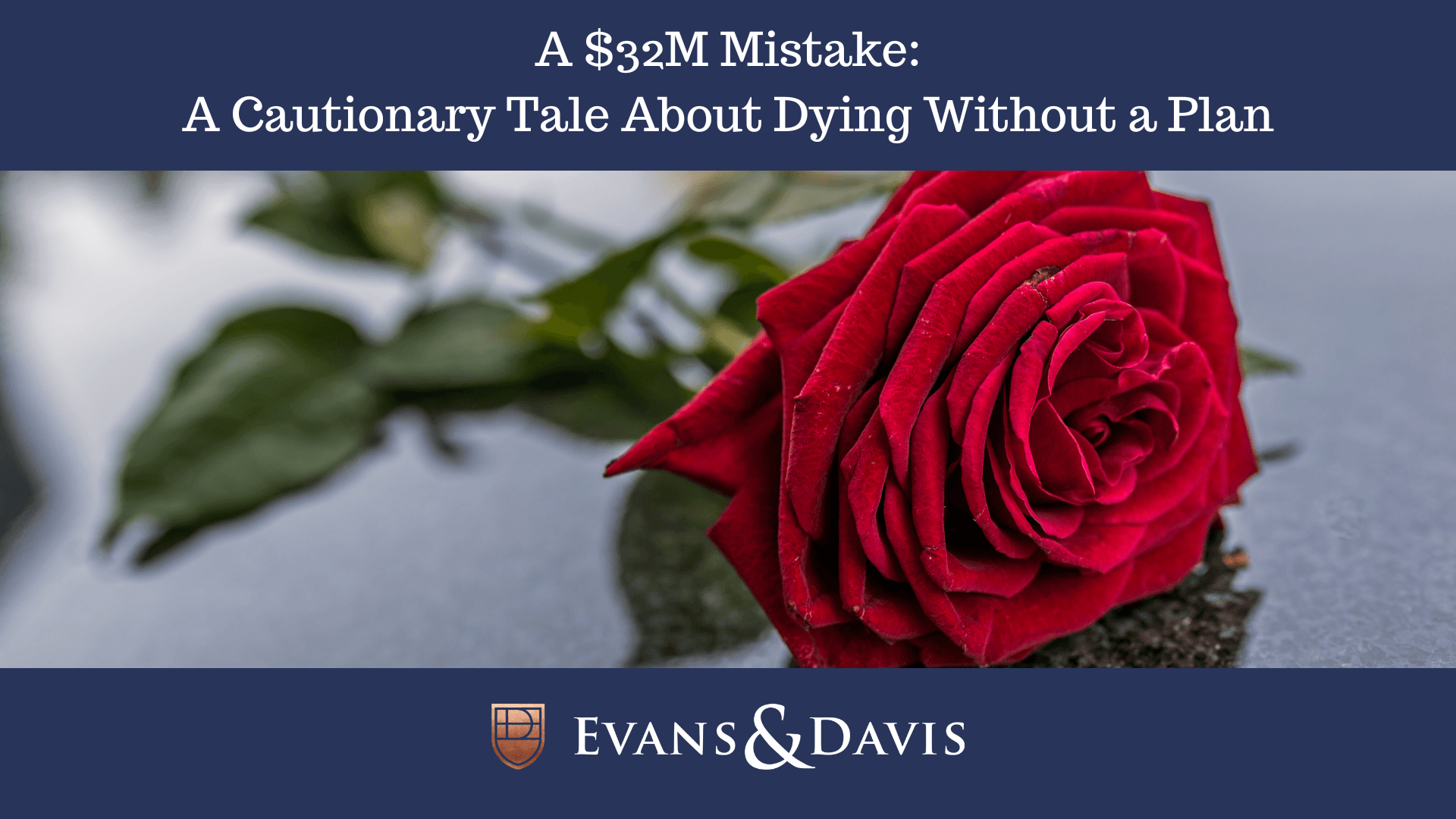
As someone who talks about death for a living (so you don’t have to), I’ve picked up on a few phrases clients love to say:
- I’ve been meaning to do this for years.
- I’m too young to need an estate plan. I’ll get my affairs in order when I’m older.
- I’m not wealthy enough to need a will or a trust.
Despite hearing this constantly, I’m still surprised that it’s such a common mindset. What surprises me even more is when celebrities who have amassed serious wealth die without a plan in place. Off the top of my head, the celebrities who come to mind are Prince, Chadwick Boseman, and Amy Winehouse.
Here’s a more recent example. In October 2024, former One Direction star Liam Payne passed away without a will, trust, or any estate plan in place. At the time of his death, his estate was valued at approximately $32 million.
So, what happens when someone dies without a plan? The annoying attorney’s answer is: It depends. It depends on where that person lived at the time of death. If they lived in New York City, New York’s laws apply. If they lived in Miami, Florida law would control.
Every state (and country) has different rules, but in my experience, the estate doesn’t always go where you might assume. For example, in Texas, if a married person dies without a will, their entire estate doesn’t automatically go to the surviving spouse. If they have children, only one-third of the inheritance goes to the spouse, and the remaining two-thirds is split between the children.
In England and Wales, intestacy laws give the spouse first claim to the estate, followed by the children. Liam Payne wasn’t married at the time of his death, but he does have an eight-year-old son, Bear.
It’s safe to assume that Payne would have wanted the bulk of his assets to go to his son, but would he have wanted his ex-partner to control those assets? We’ll never know. However, because Bear is a minor, his mother, Cheryl Tweedy, has been named an administrator of Payne’s estate.
Tweedy won’t be completely unchecked—at least one other estate administrator, Richard Bray (a music industry lawyer), has also been appointed. Still, there were options available that would have allowed Payne to exercise more control over how his estate is managed and distributed.
A good option: Payne could have had a will naming an executor of his choice. His estate still would have gone through probate, but he could have appointed a trusted friend or family member to ensure his wishes were followed.
The best option: Payne could have had a trust. A trust avoids probate entirely—no court involvement, no public record, and minimal potential for conflict. He could have selected someone he trusted to administer the estate privately. He also could have included protections to keep Bear’s inheritance in trust until Bear is mature enough to manage it. In the meantime, the trustee would ensure Bear’s needs were met without risking the money being misused.
A trust would have been the best option for Liam Payne—and it might be the best option for you, too. Trusts aren’t just for people with $30 million. They’re for anyone who owns a home, has a life insurance policy, or owns a business.
You don’t need to be rich or famous to plan ahead—you just need to care about what happens to the people and things you leave behind. An estate plan isn’t about how much you have; it’s about making sure what you do have ends up in the right hands with as little stress and conflict as possible. If you’ve been putting it off, consider this your sign to start the conversation today.


